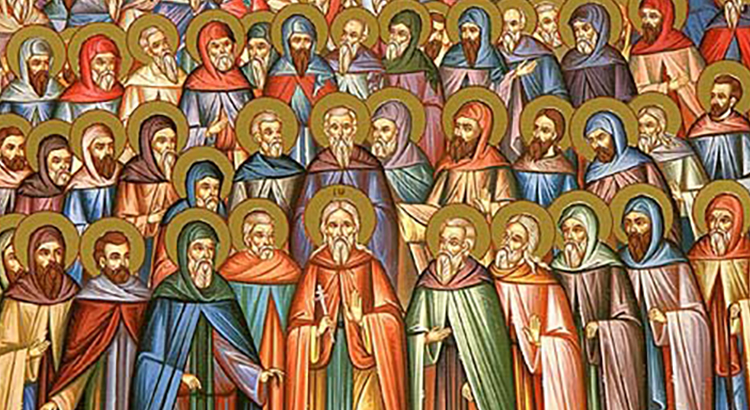Memory of the Saints and the Prophets
Memorial of Saint Ignatius, bishop of Antioch. He was condemned to death, brought to Rome where he died a martyr (+107).
Reading of the Word of God
Alleluia, alleluia, alleluia
You are a chosen race,
a royal priesthood, a holy nation,
a people acquired by God
to proclaim his marvellous works.
Alleluia, alleluia, alleluia
Luke 11,42-46
But alas for you Pharisees, because you pay your tithe of mint and rue and all sorts of garden herbs and neglect justice and the love of God! These you should have practised, without neglecting the others. Alas for you Pharisees, because you like to take the seats of honour in the synagogues and to be greeted respectfully in the market squares! Alas for you, because you are like the unmarked tombs that people walk on without knowing it!' A lawyer then spoke up. 'Master,' he said, 'when you speak like this you insult us too.' But he said, 'Alas for you lawyers as well, because you load on people burdens that are unendurable, burdens that you yourselves do not touch with your fingertips.
Alleluia, alleluia, alleluia
You will be holy,
because I am holy, thus says the Lord.
Alleluia, alleluia, alleluia
Upon hearing Jesus' harsh words against Pharisaic ritualism, a lawyer responds that he is also offending him and all his colleagues: "Teacher, when you say these things, you insult us too." It is the reaction of someone who wants to defend himself and his convictions, without feeling any need to change, to understand more deeply what the Lord is asking, and thus to undertake a better life than the one he is living. Indeed, as Paul says, the Word of God is like a double-edged sword that cuts to the marrow and does not leave us indifferent. It does not bless our behaviour without altering it, and it does not enter our hearts without cutting away everything that hinders it, or worse, leads us to ruin. The Word is a saving and good force that changes our heart. Jesus unmasks the sin of the Pharisees and scribes: even though they are respected by the people, who look to them for guidance and direction, in reality their behaviour is false and in error. This is why Jesus' judges them so severely. The people trust them. They seek help and guidance from people who "appear" to be leaders, but those they look to neglect what is essential: "justice and the love of God." They might pay their tithes to the temple and let themselves be charmed by the honour they receive at the synagogue, but in truth they are like "graves", that is, empty people who are dead on the inside. With cold severity, they put heavy burdens on the shoulders of others, but they neither want nor are able to bear them. This falsehood, this deceitful and duplicitous behaviour, is strongly condemned by Jesus. His anger and severe judgment are a warning for us all when sometimes we set ourselves up as merciless judges, small masters without scruples or second thoughts, who take advantage of the good faith of those who are looking for older brothers and sisters they can trust as they try to grow spiritually.
